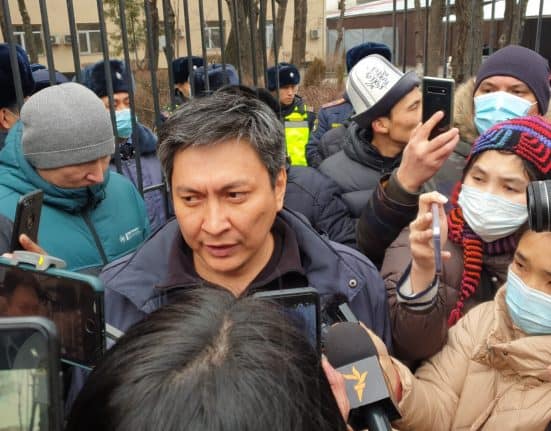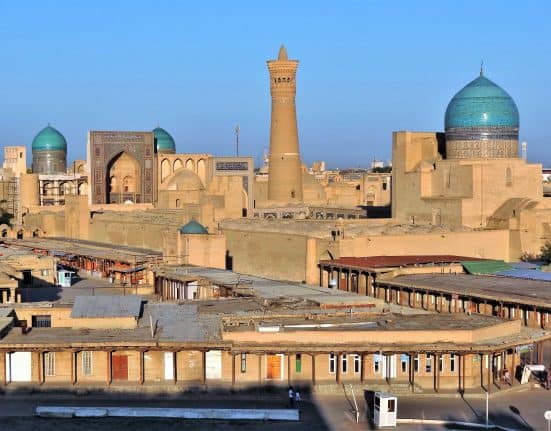The share of public procurement in the total amount of Kazakhstan’s budget expenditures is about 30% or $8.8 billion, that is, approximately 5% in the structure of the country’s GDP. Of course, such amounts attract corrupt officials at all levels of the public procurement system.
According to Ulan Sarkulov, Deputy Chairman of the Anti-Corruption Agency, every fifth corruption crime in Kazakhstan is committed in the field of public procurement.
“From 2020 to the first quarter of 2022, 418 criminal cases were completed. 162 persons were convicted. The analysis showed that almost 80% of these crimes are related to theft of budget funds and bribery when signing fictitious acts of work performed and determining the winner of the procurement. This is about 150 crimes. Basically, they were committed in the fields of construction, healthcare, education and culture,” said Sarkulov.
He cited several facts as evidence. So, for example, Abuova (head of the Department of culture of Kyzylorda region) was convicted. She took a bribe in the amount of $ 2,325 for the unimpeded transfer of funds for the construction of the monument to Zhalantos Bahadur.
“This year, Balykbayev (deputy mayor of Borodulikha district of the East Kazakhstan region) was sentenced to three years in prison. He took a 10% kickback from the entrepreneur in the amount of $4200 for the conclusion of public procurement contracts for the repair of roads and culverts. Last year, the Agency exposed Khamenov (deputy mayor of Atyrau region), who is suspected of taking a bribe of $10.5 thousand for concluding the agreement on the manufacture and installation of the monument to Abai Kunanbayev in Atyrau,” Sarkulov added.
According to the speaker, corruption has also penetrated the ranks of those who have been placed by the state to control financial spending by officials. Thus, 27 corruption crimes were registered only in relation to officials of the internal state audit.
“They usually received bribes for reviewing the results of public procurement competitions. For example, facts were revealed when employees of the internal state audit organized complaints about the results of competitions. Then, again, they carried out inspections, pursuing their own selfish goals. Last year, 1,600 such complaints were filed by one company; 900 of them were satisfied. At the same time, others (real appeals) were actually ignored,” said Sarkulov.
He emphasized that crime in the field of public procurement is characterized by high latency, and methods of embezzlement of budget funds are becoming more sophisticated every year. According to Sarkulov, in order to solve this problem, it’s necessary to deal not with the consequences, but with the causes.
For example, there is a high level of corruption in procurement from one source. The laws now provide for 47 grounds for procurement through a direct contract, which makes it possible to conduct procurement in a non-competitive way.
“In 2021, in Turkestan region, $515.5 million out of $720 million spent on public procurement was allocated in this way. That is more than 70%. A striking example of such purchases is the acquisition of intellectual property. Under current legislation, there are practically no restrictions on obtaining a copyright certificate. Under this pretext, the price of the work, computer programs, sketches of monuments are registered. Thus, conditions are artificially created for organizing purchases from one source,” he explained.
The efficiency of such a scheme is clearly seen in the procurement of information systems. Thus, government agencies and subjects of the quasi-public sector purchased about 500 information systems for a total of $595.5 million. 80% of this amount, or $511 million, was spent by purchasing from one source.
“The sums are considerable. Some developments cost the budget 20 million dollars. What has this practice led to? It turned out that every third information system was recommended by the authorized body for decommissioning due to duplication, non-use, and so on. There are also criminal cases against officials who paid for non-functioning IT developments!” Sarkulov was indignant.
Another important problem, according to anti-corruption fighters, is that when planning public procurement and budget spending, the amount of kickbacks is initially laid down for them.
“Money is initially included with a margin in order to have enough for both kickbacks and good profits. The Agency systematically monitors overpricing. Only this year, on our recommendations, government agencies revised their purchases and saved the budget over $11 million. In total, more than $164 million has been saved since the beginning of the project, namely over two years. It turned out that with such overpricing, the responsibility of officials is not provided. We have already submitted a proposal to the Ministry of Finance to punish negligent officials administratively,” the speaker summed up.






